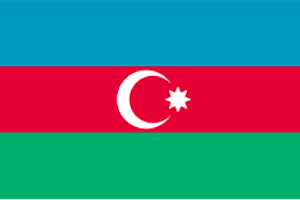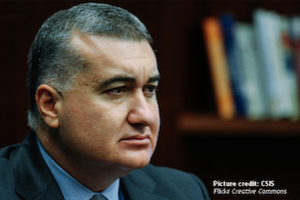IMF Economic Outlook on Caucasus and Central Asia: Structural Transformation Needed

CACI FORUM
IMF Economic Outlook on Caucasus and Central Asia: Structural Transformation Needed
Wednesday, 30 November 2016, from 5 to 7 p.m.
Light reception with Georgian wines at 5; main program at 5:30
A decline in commodity prices and slowing in key economic partners such as Russia and China, had a significant impact on the countries of Central Asia and the South Caucasus. Regional growth is projected to average only 1.3 percent this year, representing a dramatic decrease in economic activity compared with growth rates of the early 2000s. According to the IMF, next year the region's economies should turn a corner, with average growth reaching 2.6 percent. Medium-term prospects remain weak, however, with growth projected to average 4 percent in the 2018–21 period, half that in 2000–14.
These and other important economic topics will be discussed as part of the Regional Economic Outlook Report, the latest IMF release on the Caucasus and Central Asia. The special focus of this year's presentation is Kazakhstan: the discussion will review this country's macroeconomic and structural policy response to shocks that began in late 2014, and will examine prospects for the medium term.
Speakers:
Juha Kahkonen, Deputy Director, Middle East and Central Asia Dept., IMF
Mark Horton, Mission Chief, Kazakhstan, IMF
Moderator:
Mamuka Tsereteli, Research Director, Central Asia-Caucasus Institute
Rome Building Auditorium
SAIS - Johns Hopkins University
1619 Massachusetts Ave., NW
Washington, DC 20036
Secular Government and Civic Nationhood in Azerbaijan: History, Context, Implications

Secular Government and Civic Nationhood in Azerbaijan: History, Context, Implications
Tuesday, 22 November 2016, from 12 to 2 p.m.
Since its emergence as a nation in the early twentieth century, Azerbaijan’s state and society have both remained remarkably faithful to secular governance and a civic national conception. In recent years, the government has doubled down on these concepts, among other by designating 2016 the year of multiculturalism. But what do these terms mean in practice? What are the policies developed by the Azerbaijani government, and what reactions have emerged in society? How does Azerbaijan compare to countries in its neighborhood, and what are the implications for the West?
Speakers:
Svante E. Cornell, Director, Central Asia-Caucasus Institute
Moderator: Mamuka Tsereteli, Research Director, Central Asia-Caucasus Institute
This event may now be viewed on the SAIS Events channel on YouTube.
SAIS - Johns Hopkins University
1619 Massachusetts Ave., NW
Washington, DC 20036
The Road Ahead for Azerbaijan and the Caucasus

The Road Ahead for Azerbaijan and the Caucasus
Wednesday, Oct. 19, 2016, from 5 to 7 p.m.
(reception at 5 p.m.; main program at 5:30)
This event can now be viewed on the SAIS events YouTube channel.
A Talk by
Elin Suleymanov
Ambassador of the Republic of Azerbaijan to the United States of America
As Azerbaijan celebrates twenty five years of independence, Ambassador Suleymanov will look at the achievements of his country and focus on future prospects both for Azerbaijan and the region as a whole in an era of mounting tension and geopolitical transformations.
Moderated by S. Frederick Starr, Chairman, Central Asia-Caucasus Institute
SAIS - Johns Hopkins University
1619 Massachusetts Ave., NW
Washington, DC 20036
Under the Radar: Georgia’s October 2016 Elections
Azerbaijan Since Independence
Book, Routledge, 2011
Svante E. Cornell, Azerbaijan Since Independence
Azerbaijan Since Independence offers a comprehensive intro- duction to modern Azerbaijan, a post-Soviet republic located on the western shore of the Caspian Sea. This small country has outsized importance due to its strategic location at the cross- roads of Europe and Asia, its energy wealth, and its historical experience as an early modernizer in the Muslim world.
The book begins with six chapters on Azerbaijan’s history from pre-Soviet times to the present, with an emphasis on the past twenty years. The next four chapters are thematic, covering the con ict over Karabakh, the political system, the oil-dominated economy, and societal changes and trends including the role of Islam. The remainder of the book surveys Azerbaijan’s foreign relations, with an analysis of the foreign- policy-making context complemented by chapters on relations with Iran, Russia, Turkey, and the West. The book closes with a brief epilogue discussing the country’s future.
Svante E. Cornell is Director of the Central Asia-Caucasus Institute & Silk Road Studies Program, a Joint Center affiliated with the Johns Hopkins University’s School of Advanced International Studies and the Stockholm-based Institute for Security and Development Policy (ISDP).
See details and order the book from Routledge or on Amazon.com
Contents:



